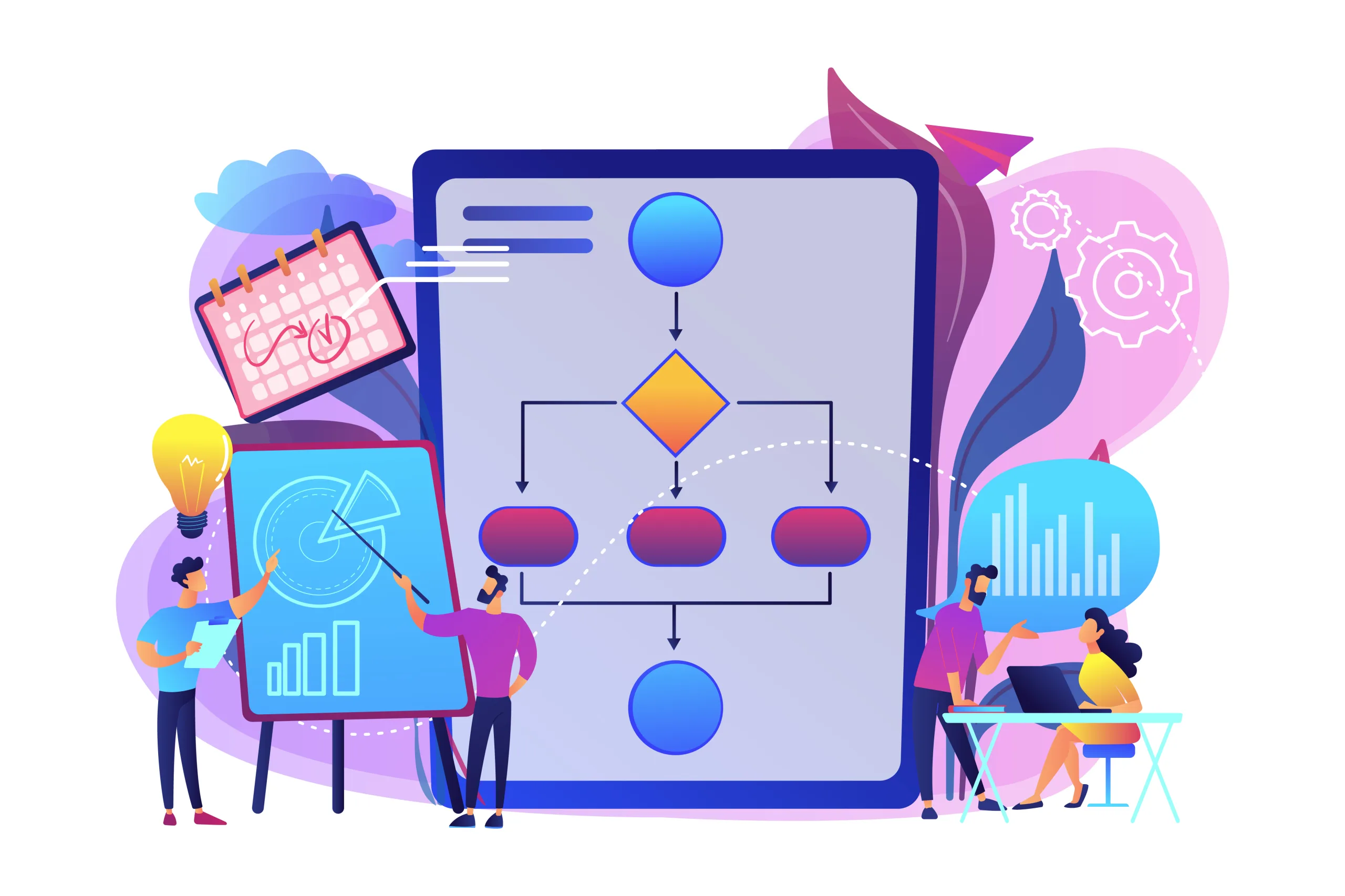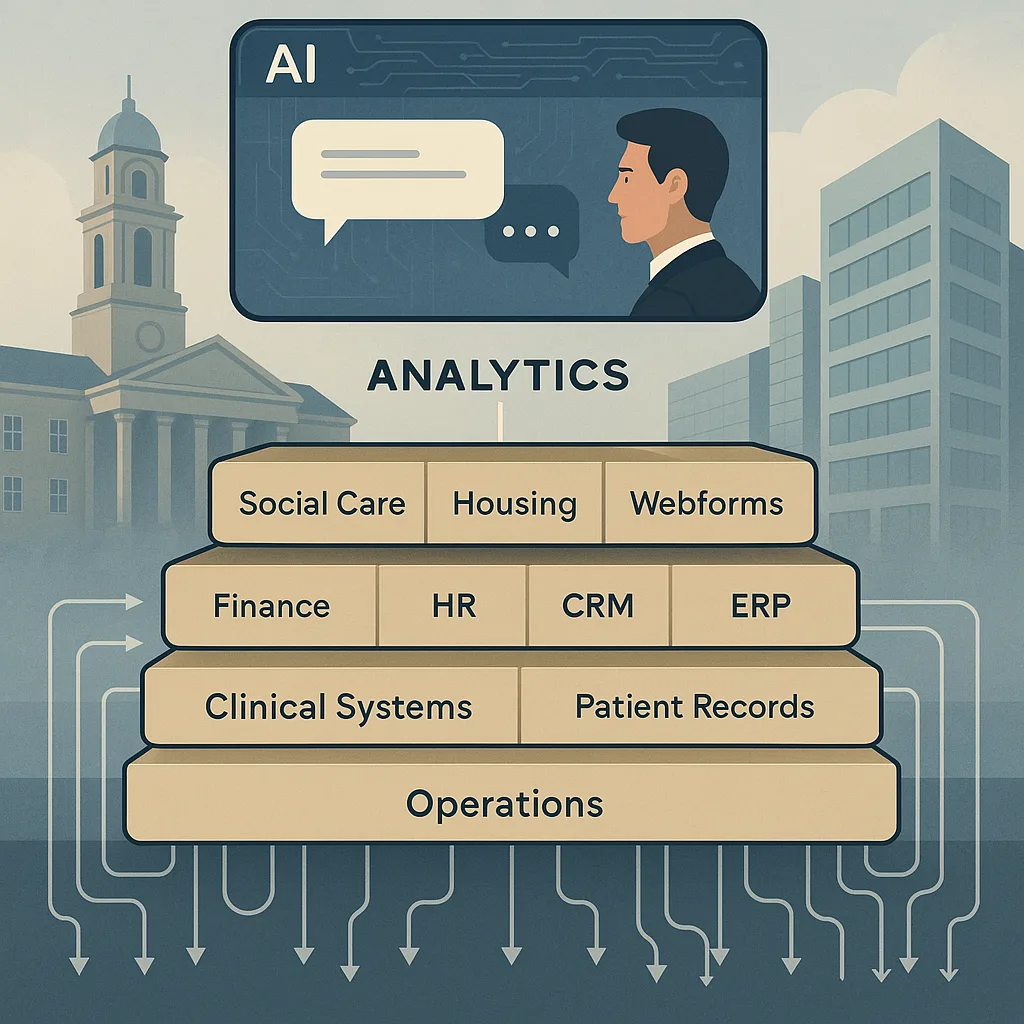In the face of financial uncertainty and the ominous shadow of Section 114 notices, councils find themselves facing some very difficulty decisions.
These notices, a stark warning of unsustainable budgets, compel councils to cease all but essential spending, putting immense pressure on their operations and the communities they serve.
Amidst such challenges, the role of data, analytics, and insight platforms can be more than operational tools, and instead chart a much more hopeful transformation journey.
This is where a partnership with itelligent-i emerges not just as an option but as a strategic imperative, offering a pathway to resilience, efficiency, and enhanced service delivery.

For instance, if we take adult social care services which can often amount to as much as 50 percent of up tier authority spending, analytics can revolutionise how services are delivered, moving from a reactive to a proactive model.
By analysing patterns and trends within historical data, councils can identify individuals at risk before their needs become critical, ensuring timely and effective intervention. This not only improves the quality of life for those in need but could find unnecessary avoidable cost due to the wrong care being provisioned.
Data analytics enables smarter resource allocation, ensuring that limited funds are directed where they can have the greatest impact. In adult social care, this means identifying high-demand areas and allocating resources more efficiently, thus optimising costs. By understanding the dynamics of service demand, councils can make informed decisions that balance quality care and financial sustainability. The question is, how often are councils using their own data and then applying insight and intelligence to make these evaluations? Is it a seamless, automated process or does it require manual, moments in time, resource allocation to get the results?
Through the insights gleaned from data analytics, councils can tailor social care services to meet the unique needs of individuals. This personalised approach not only enhances the quality of care but also promotes independence among service users, contributing to their well-being and reducing the reliance on more intensive, costlier services.
Platforms and strategic support from companies like intelligent-i give Directors and section 151 officers, continuous, year-round, automated evidence. We don’t wait for the budget-setting cycle. The adoption of analytics allows for the continuous monitoring and evaluation of social care services. By measuring outcomes against predefined goals, councils can identify areas of improvement, adapt strategies, and ensure that services evolve in response to changing needs. This ongoing process fosters a culture of excellence and accountability in service provision.
Data analytics facilitates the integration of social care with health services, promoting a holistic approach to well-being. By sharing insights and coordinating efforts, councils and health providers can deliver more cohesive care, addressing the complex needs of individuals while optimising resources across the board.
And there can be a genuine two-way process. Analytics platforms can harness feedback from service users and caregivers, providing invaluable insights into the quality of care and areas for enhancement. This feedback loop is crucial for maintaining high standards and fostering trust within the community. It also gives end users more independence over their care.
Essentially, using data and insights in the ways we suggest, allows councils to be more proactive. Identifying trends is pivotal for future-proofing social care services. Analytics can reveal emerging patterns, from demographic shifts to changing service demands, enabling councils to plan strategically and adapt to future challenges. This is so important for councils close to major cities where “hidden” demand through the movement of vulnerable people out of cities and into suburban areas is having a silent impact on services.
Partnering with itelligent-i offers councils a fast track to unlocking the potential of their data. Our expertise in analytics and insights can rapidly transform data into actionable intelligence, driving more informed, strategic decisions that benefit both the council and the communities it serves.
Whether embarking on this journey, navigating the complexities of audit and governance, or seeking to enhance analytical capabilities, itelligent-i is equipped to accelerate the delivery of insights tailored to the unique context of each council. For any council at risk of a 114, they need to ask themselves whether they have truly explored every facet of what the data is telling them, and if they don’t know they need to ask.
As councils navigate the challenging landscape marked by Section 114 notices, the imperative to leverage data, analytics, and insight platforms has never been greater. The journey towards data-driven services is complex, with each council at a different stage of this transformation. However, the potential rewards—improved service delivery, financial sustainability, and enhanced quality of life for communities—underscore the critical importance of this transition.
With itelligent-i, councils can bridge the gap between data and actionable insights, catalysing change and driving outcomes that matter. It is not just about navigating through financial distress but seizing the opportunity to redefine the future of your services through the power of data and analytics.



